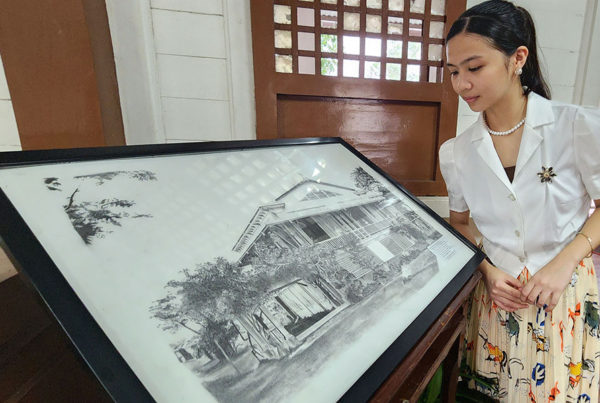Alaminos longganisa is here!
MOVE OVER VIGAN, PAMPANGA, LUCBAN
ALAMINOS CITY–The world-famous Hundred Islands is no longer the sole pride of this city.
A longganisa unique to Alaminos – one that is fully organic, meaning no preservatives are used, loaded with garlic, and sealed at both ends with a “toothpick” – is slowly gaining popularity with sales becoming brisk both in the local and international markets.
“It’s the only one of its kind, with a built-in toothpick,” said Mayor Hernani
Braganza in a talk to local newsmen Saturday during the staging of the third Longganisa Festival in line with the celebration of the city’s annual fiesta.
As part of the Longganisa Festival, a street dancing competition was held, participated in by high school and college students wearing brightly colored costumes adorned with longganisa.
Braganza said sales of longganisa makers and vendors have increased since the introduction of the festival.
Most of the new patrons are tourists and the Alaminos longganisa has found its way to many leading supermarkets in the province and in Metro Manila as well as in various restaurants.
Their biggest challenge now is how to export the product to meet the demand among Alaminians based abroad.
“Mas masarap ang aming longganisa lalo’t may itlog na maalat pa (Our longganisa tastes better, especially if paired with salted egg),” Braganza advised.
LONG HISTORY
The Alaminos longganisa actually has a long history that can be traced back to the Spanish era.
Originally, according to Braganza, their longganisa was longer, which made it very difficult to cook. Someone then thought of making it into small oblong-shaped ones and later added the toothpick on both ends to distinguish their product from the other longganisa made in other parts of the country.
Other Philippine places known for longganisa are Vigan in Ilocos Sur, Pampanga and Lucban town in Quezon province.
LONGGANISA
QUEENJudy Ventura, considered as the longganisa queen here, said she and her husband Ramil inherited their business from her husband’s family. It was her parents- in-law, Charing and Juan Ventura, who pioneered the ‘toothpick’ feature.
Ventura clarified that the “toothpick” is not really the commercial type, but a mature coconut stick (for walis tingting) bought at P120 per kilograms. The knots used are made of a local material known as silag or buli, is similar to the type used for mat-making.
The meat is juicy and has a shelf life of up to seven days or even a month if frozen, she said.
Ventura said their sales, and those of 20 other longganisa makers here, have been averaging 100 kilograms a day.
They offer two kinds: the hamonado sold at P160 per kilogram and the special (with toothpick) sold at P60 per dozen.
Apart from the Longganisa Festival, joining trade fairs with the help of sponsorships from the city government, has significantly helped their industry.—EVA







